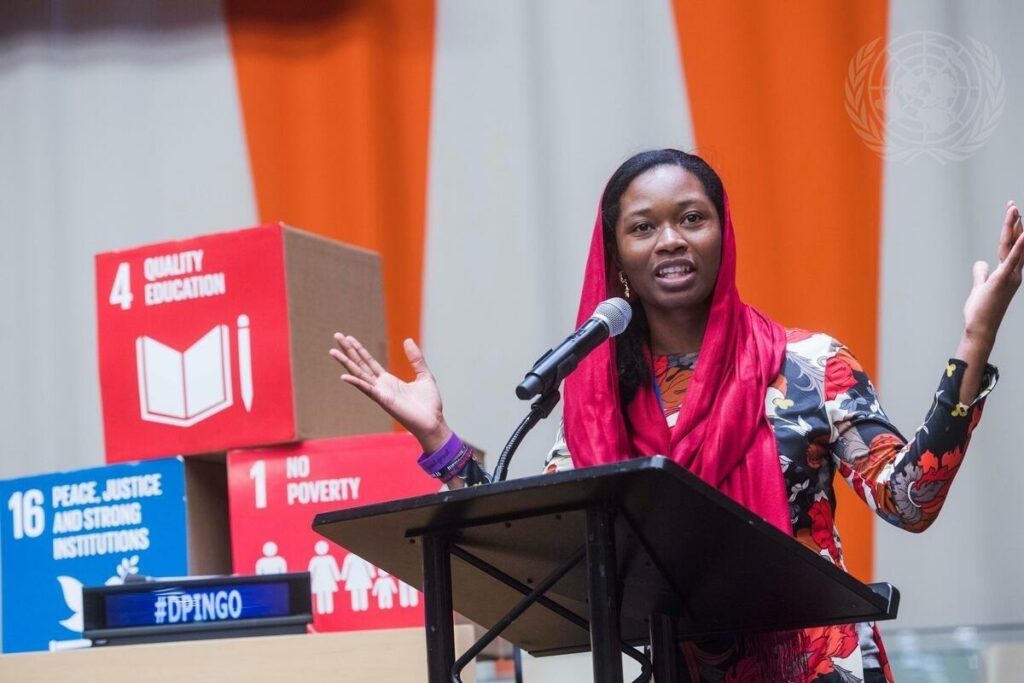How can UN CC:Learn and its partners better promote capacity building to enable youth to access climate finance?
That’s what the Dialogue Space on Learning for Countries held on May 16 2023 set out to answer. This space was set up as part of UN CC:Learn’s fifth implementation phase with the goal of bringing key stakeholders together to discuss, share experiences and collaborate on key topics at the forefront of the Action for Climate Empowerment (ACE) agenda. This would help build knowledge and skills in countries to support the implementation of their Nationally Determined Contributions and National Adaptation Plans.
The event was led by the newly appointed Chair of the Learning for Countries Dialogue Space – Dr. Roberta Ianna, a Senior Expert at the Ministry of Environment and Energy Security in Italy and focal point on ACE for Italy – whose one-year term commenced in March 2023. She kicked off the discussion by highlighting the increasingly important role that youth are having in climate action, stressing how access to climate finance can help unlock several opportunities for youth and asking the audience how organizations working with and for the youth, like the UN and other NGOs, can empower young people to access climate finance.
Dr. Ianna’s introduction was followed by a series of presentations and an exchange session. To kick off the presentations, Ms. Emanuela Vignola and Dr. Ianna presented about the Youth4Climate and Youth4Capacityinitiatives respectively. Both initiatives are supported by the Government of Italy. Then, Mr. Demetrio Innocenti, from the Green Climate Fund (GCF), spoke about GCF’s role in supporting youth access to climate finance. The last presentation was by Mr. Ricardo Toxiri, from the International Renewable Energy Agency (IRENA), who explained how IRENA supports young innovators in the energy transition process by empowering youth-led businesses and projects.
The moderated discussion had participants answering two questions: “How can young people be empowered to access climate finance?” and “What other initiatives or good practices are there?”. Some key takeaways from it were that young people should have more access to a series of capacity-building opportunities in which they could learn key soft and technical skills and have direct access to experts in their areas of interests. Also, hands-on, decision-making power to enable youth to fully implement their climate action initiatives arose as something that would empower them to better unlock climate finance. Moreover, as part of the exchange, the Government of Ghana shared its experience in developing a National Climate Change Learning Strategy with a strong youth component, and the Government of Senegal laid out a series of activities carried out in the country to strengthen ACE.
To wrap-up the session, Mr. Angus Mackay, Director of the Division for Planet at UNITAR, invited participants to reflect that:
- There is still a big gap between what youth need and what organizations are delivering. Moving this needle requires real support through practical initiatives such as the ones presented by the guest speakers.
- Vulnerable countries and groups are still not being fully engaged.
- Technical understanding of the topic supports the skills that one gains while learning on the job. There is still heavy lifting to be done to build soft skills together with solid understanding of climate change within education systems.
This Dialogue Space was attended by several UN CC:Learn Partners, including the United Nations Development Programme, United Nations Economic Commission for Europe, the United Nations Educational, Scientific and Cultural Organization, the United Nations Framework Convention on Climate Change, the British Council, the Green Climate Fund, the Future Leaders Network, the Global Center on Adaptation, MIET Africa, the NDC Partnership, Soka Gakkai Italy, YOUNGO, and the International Renewable Energy Agency, and the Governments of Senegal, Kenya, Liberia and Zimbabwe.

